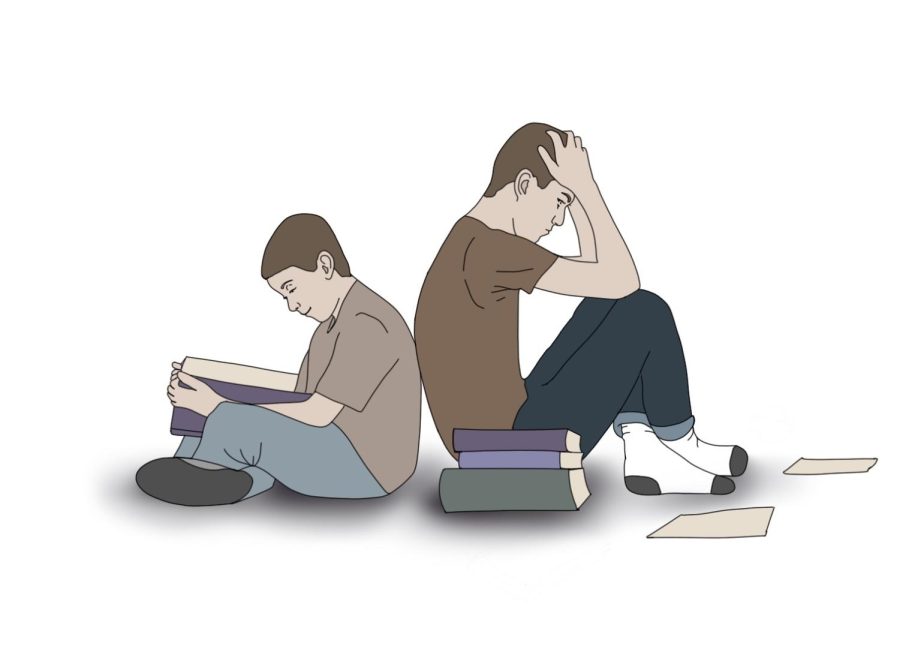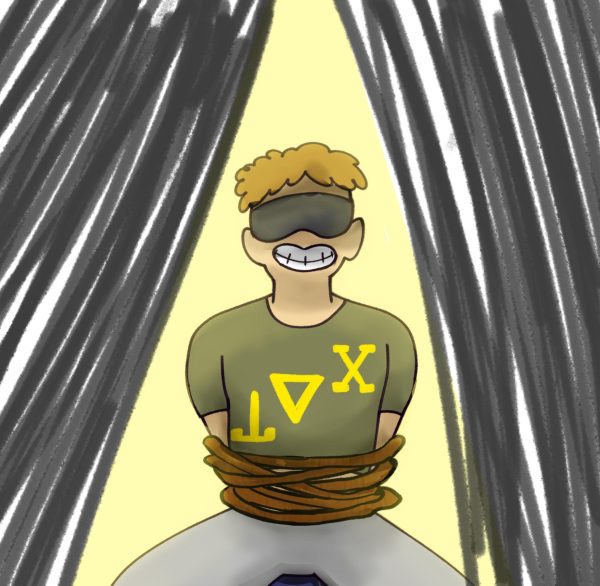The burnout epidemic, or why I wrote this article at midnight the day after the deadline
The culture of competition at U.S. schools sets us up to flicker out, and we must fight back
Around finals season, I am often confronted by the severe degree of my procrastinating tendencies. What happened to the girl who woke up at 6 a.m. to get ready for school, went to seven classes every day and still kept on top of all of her assignments? Now she can barely force herself to roll out of bed before 9 a.m. and only has a couple of classes every day, yet she can’t manage to get her assignments done until the night before they’re due.
I’m certainly not alone in these feelings of exhaustion. A disturbingly large number of college students experience burnout, a result of improperly managed workplace or school stress characterized by three dimensions. According to the World Health Organization, these dimensions are “feelings of energy depletion or exhaustion,” “increased mental distance from one’s job, or feelings of negativism or cynicism related to one’s job” and “reduced professional efficacy.”
It’s no wonder that college is the time when this burnout so often rears its head. Not only is college one of the greatest periods of change in a young person’s life, but it comes at the culmination of years and years of schooling where grades are prioritized above mental health.
Stress runs high in college years generally, but the compounding forces of the pandemic and political unrest that have marked the early ‘20s make things especially hard on current college students. A Boston University survey found that the prevalence of depression and anxiety in young people is on the increase, with half of the surveyed students screening positive for depression and/or anxiety. On top of that, 83% of students said their mental health negatively affected their academic performance in the last month.
Now, you can find any number of articles offering possible solutions to this burnout epidemic. They’ll tell students to get involved in things they’re passionate about, develop better study habits or take time for self-care. Maybe they’ll even make recommendations for what a university could do to make things easier on the students, like making mental health services more accessible or deadlines more flexible.
Not to sound overly negative, but these suggestions feel a bit like putting a bandaid on a bullet wound. On the student side of things, I find that many of these solutions are easier said than done. I may know realistically that the solutions would be somewhat helpful, but they can be hard to implement when I’m already stuck in my burnt-out mindset. Even if I do try to incorporate something like self-care breaks, the relief tends to be temporary, as the time I take out for the break means that I’ll be left with a more overwhelming amount of work to do when I finish that break.
On the university level, schools making mental healthcare more accessible and being flexible with students’ needs is incredibly important and can do students a lot of good. However, even these things don’t offer a perfect solution to the burnout epidemic, serving more as a way to manage burnout rather than stopping it before it starts.
The issue with burnout is that it is often set in motion years before you even arrive at college. Schools in the United States are incredibly competitive, even from early grades. Starting as early as elementary school, we began to subconsciously realize that school wasn’t just about learning; it was about winning. You won by keeping a straight-A average, getting the best grade on the test or placing into the highest math class.
Everything became a competition; students would brag about how little sleep they were getting as they spent hours on their homework. At my public high school, we were pushed to take more and more Advanced Placement (AP) classes and to keep up our school’s impressive AP test passing rate. The toxicity of academic competition at my school resulted in them having to get rid of class rank altogether.
This kind of environment pushes students to take on more academic responsibilities than their mental health can handle in order to prove their worth. Lessons and assignments that are actually of some interest to the student get lumped in with the tedium of doing all the things that must be done to keep up with one’s peers. “Want to” turns into “have to.” Years of “have to” leave many students tired of school and set up to burn out.
At a school like Trinity, this culture of competition continues. We have been dubbed the “and” school based on just how much the students here take on. Double majoring is incredibly common. I myself had to be talked out of a triple major. When you’re surrounded by all of these “and” students, it’s easy to feel like you’re falling behind if you aren’t busy nearly every second of the day.
Trinity students tend to push themselves into doing more and more to the point of exhaustion and still feel like they aren’t doing enough. It’s important to remember that everyone compares themselves to other people and that all of us feel like we’re falling behind most of the time.
Until the system of competition in our schools is properly addressed, we have to be willing to say no sometimes and focus on what really matters to us, rather than what looks good on a resume. We have to learn to stop seeing our fellow students as competitors and realize that we’re all in the same boat when it comes to feelings of burnout.

Hello! My name is Sarah, and I'm a senior from Nashville, TN majoring in communication and Spanish with a minor in history. I've been with the Trinitonian...







